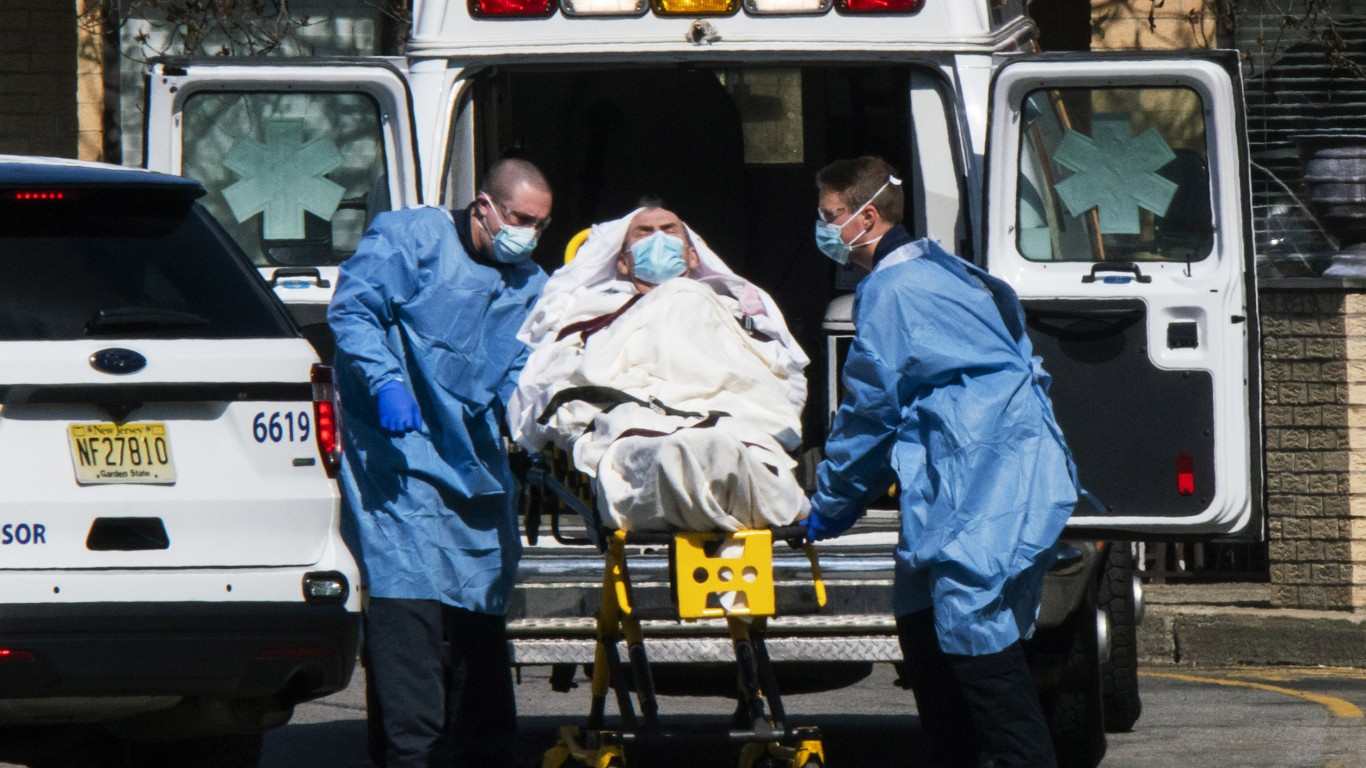Health and Healthcare
COVID-19: These 5 States Have 75% of New Cases, CDC Shows

Published:

The rate of the spread of COVID-19 had slowed across America. Despite a new surge, increases in daily fatal and confirmed cases are still about half what they were three months ago. Nevertheless, 573,551 Americans had died as of Tuesday, which is about 20% of the world’s total. The global death total just moved above a staggering 3 million. Confirmed cases have reached 31,976,092 in the United States, or about 23% of the global number. Hospitalizations, which were over 100,000 a day during the peak wave, have dropped into the thousands.
[in-text-ad]
Variants have become a large part of the conversation among public health officials and epidemiologists. One variant, first identified in the United Kingdom and known as B.1.1.7, is more transmissible than the strain that was dominant in the United States over most of the pandemic. The Centers for Disease Control and Prevention (CDC) also officially tracks these other variants: B.1.351, P.1, B.1.427 and B.1.429. Worries are that some may be more deadly than others and that vaccines may not protect against one or more variants.
Scientists believe that new variants will continue to appear, some of which may originate in America and others that may come from overseas. Tuesday, it was announced that “Scientists at the Texas A&M University Global Health Research Complex (GHRC) have identified a variant of the COVID-19 virus — ‘BV-1’ — that could present a new challenge to public health.”
At this point, according to The New York Times, 40% of Americans have been given at least one dose of a vaccine, and 26% are fully vaccinated. As of Wednesday, 277,938,875 doses have been delivered, and from those 215,951,909 shots have been given, or about 78%.
Becker’s Hospital Review pulled data from The Wall Street Journal, which had reviewed numbers from Johns Hopkins and the CDC. This showed that five states represented 75% of new cases, based on seven-day positivity rates:
New Jersey’s seven-day positivity rate nearly doubled in the past 24 hours, from 7.4 percent reported April 20 to 14.2 percent reported April 21. The state reported 2,839 COVID-19 cases
As of April 21, Michigan is reporting the third highest test positivity rate in the nation, with a 16.4 percent seven-day average paired. [The number of new COVID-19 cases for the state was not available at time of publication.]
Pennsylvania, with a seven-day positivity rate of 10.1 percent, reported 5,369 new COVID-19 cases.
New York has a 2.8 seven-day test positivity rate and reported 4,576 new cases.
Florida, with a seven-day test positivity rate of 10.2 percent, reported 5,645 new cases.
The New York Times shows that vaccination rates in most of these states are relatively high, particularly in New Jersey, Pennsylvania and New York. With luck, this will bring their terrible positivity rates down.
Click here to see the states where COVID-19 is surging fastest.
Credit card companies are pulling out all the stops, with the issuers are offering insane travel rewards and perks.
We’re talking huge sign-up bonuses, points on every purchase, and benefits like lounge access, travel credits, and free hotel nights. For travelers, these rewards can add up to thousands of dollars in flights, upgrades, and luxury experiences every year.
It’s like getting paid to travel — and it’s available to qualified borrowers who know where to look.
We’ve rounded up some of the best travel credit cards on the market. Click here to see the list. Don’t miss these offers — they won’t be this good forever.
Thank you for reading! Have some feedback for us?
Contact the 24/7 Wall St. editorial team.